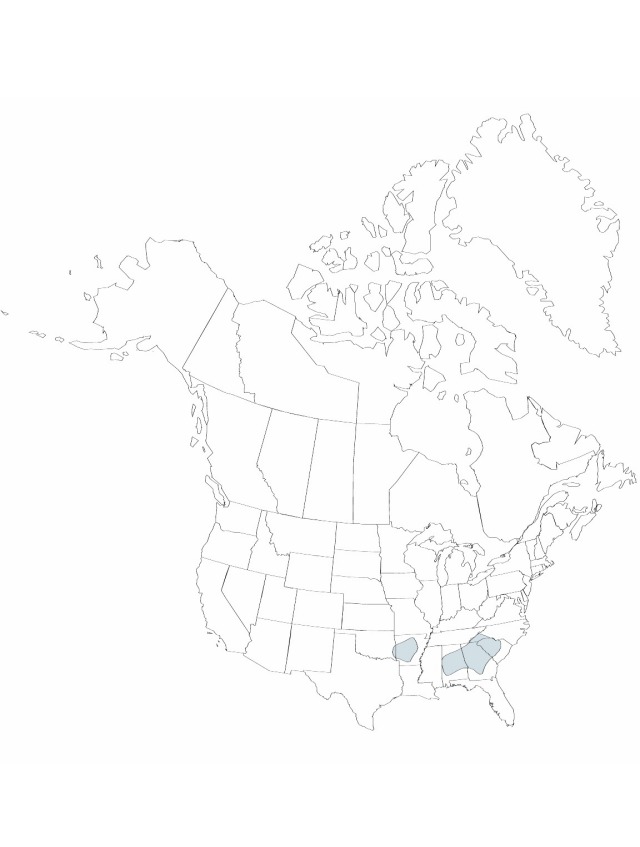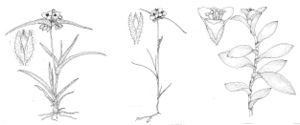Tradescantia hirsuticaulis
Bulletin of the Torrey Botanical Club 24:233. 1897.
Herbs, erect or ascending, rarely rooting at nodes. Roots not brownish-tomentose. Stems unbranched or sparsely branched, (2–) 15–40 cm; internodes densely pilose to glabrescent. Leaves spirally arranged, sessile; blade dull green, linear-lanceolate, 10–30 × 0.6–1.6 cm (distal leaf-blades equal to or narrower than sheaths when sheaths opened, flattened), margins ± densely ciliolate, sometimes also sparsely ciliate, apex acuminate, puberulent and sparsely to densely pilose (rarely glabrescent). Inflorescences terminal, rarely axillary; bracts foliaceous, usually spreading, puberulent, usually sparsely to densely pilose, margins ± densely ciliolate. Flowers distinctly pedicillate; pedicels 1.5–3.5 cm, densely pubescent with mixture of glandular, eglandular hairs; sepals suffused with rose or purple, 6–13 mm, pilose with mixture of glandular, eglandular hairs, glandular-hairs numerous, conspicuous, longer hairs 1.5–6 mm; petals distinct, rose to bright blue, ovate, not clawed, 11–16 mm; stamens free; filaments bearded. Capsules 5–6 mm. Seeds 2–3 mm; hilum as long as seed. 2n = 12.
Phenology: Flowering spring (Mar–May).
Habitat: Rocky woods on hillsides, also sandy woods, thickets, ledges, rock outcrops, stream banks and roadsides
Distribution

Ala., Ark., Ga., N.C., Okla., S.C.
Discussion
The separation of specimens nearly without evident stems from Tradescantia longipes is discussed by S. L. Timme and R. B. Faden (1984). The record of T. hirsuticaulis from Texas (C. Sinclair 1967) is not considered credible. The hybrid T. hirsuticaulis × T. virginiana was reported from Alabama (E. Anderson and R. E. Woodson Jr. 1935).
Selected References
None.
